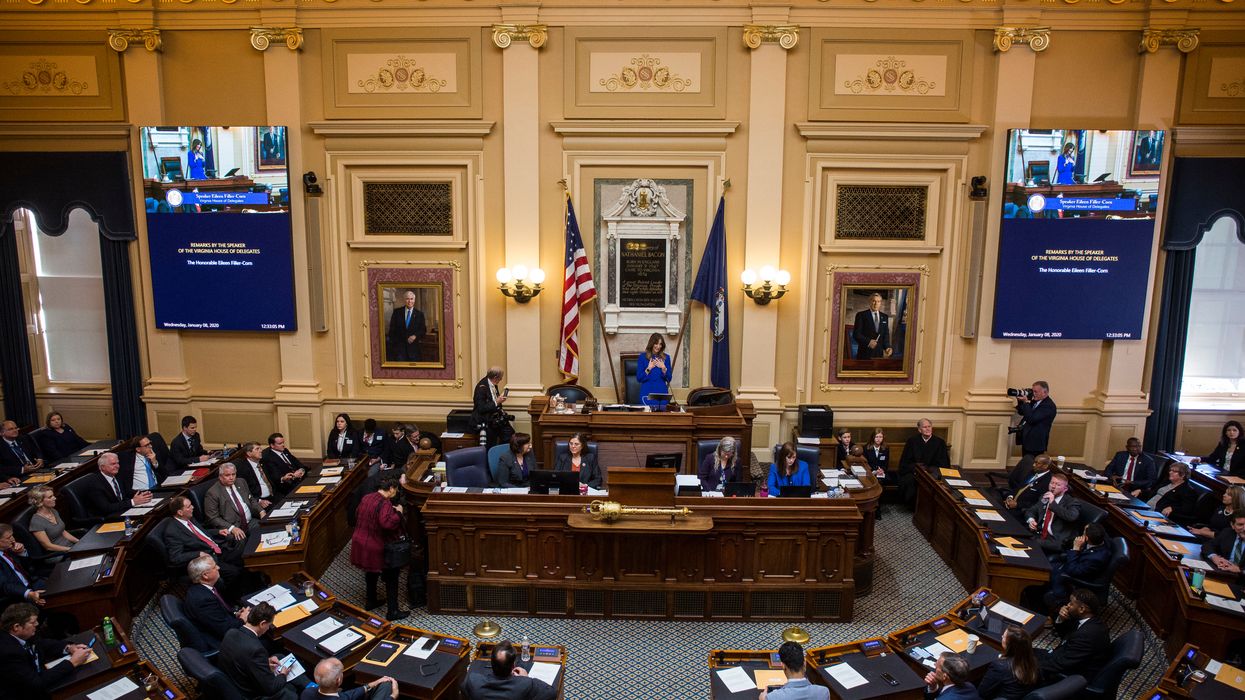Cannon is executive director of OneVirginia2021, which i s campaigning to amend the state Constitution to create a nonpartisan redistricting commission.
Virginia is on the cusp of historic redistricting reform. The commonwealth is not known for being on the cutting edge of voting reforms, but following the success of redistricting reforms in Michigan, Colorado, Missouri, Ohio and Utah in 2018, the winds of change are blowing to the mid-Atlantic.
Democrats newly in control of the General Assembly look increasingly likely to get behind a plan for turning the Legislature's power to draw all of Virginia's political boundaries over to an independent commission. But there are a couple of ways this could happen, one much more problematic than the other.
This means there is a looming threat all Virginians should consider: Reform in time for the post-census remaking of the congressional and legislative maps in 2021 could be undone by another redistricting later in the decade.
Not only is such mid-decade redistricting widely considered hyper-partisan and bad for democracy, but it's also an all too frequent occurrence in this country. While either party can practice the dark arts of gerrymandering, the Republicans have had a pair of notable and notorious mid-decade redistricting operations in the past 20 years.
In the spring of 2003, Texas Republicans, newly empowered in the legislative majority — and under the strategic guidance of Rep. Tom Delay, then the most powerful Texan — pushed forward a mid-decade redistricting plan. This compelled a quorum-denying number of Democrats to leave the state for a Holiday Inn in Oklahoma in an attempt to thwart the GOP plan. It didn't work. The new maps further gerrymandered the state and worked to disadvantage Latino voters. And ultimately, this partisan power grab was upheld by the Supreme Court.
A decade later, in 2013, the Virginia Senate was split 20-20. The House and the governor's mansion were in Republican hands. On Martin Luther King Day, while Democratic Sen. Henry Marsh was away to attend the second inauguration of President Barack Obama, Republicans snuck through a redistricting plan with their one-day majority of 20-19. They intended to replace a Democratic gerrymander from 2011 with a Republican gerrymander.
The Senate plan ultimately died in the Republican-controlled House of Delegates thanks to a parliamentary ruling by then-Speaker Bill Howell. While this attempt didn't succeed, such a maneuver is clearly possible in Virginia.
Article 2, Section 6 of the state Constitution gives the power to redistrict to members of the Legislature. It says they "shall'' redistrict in 2011 and every subsequent 10 years. Importantly, what it doesn't say is that they "shall NOT" redistrict in years ending in 2, 3, 4, 5, 6 7, 8, 9, and 0. While we'd surely prefer there be a "shall NOT" in the document, it simply isn't present, and thus the General Assembly has an ability to make new maps beyond just years ending in "1." That's where you get mid-decade redistricting.
There are two basic paths available to the Legislature, which is now in session until early March. The first is a proposed constitutional amendment that passed overwhelmingly last February and must pass again in 2020 before going on the November ballot for voter approval. The second is a statutory approach for an advisory commission with the promise of a future amendment to address gerrymandering.
The first approach — a constitutional amendment — will stop mid-decade redistricting by either party. The enabling legislation that would need to follow its endorsement by the electorate could be repealed, but the framework of the amendment would still be in place and prevent redistricting during the 2020s.
The statutory approach would not provide that security. Whatever might get passed as a statute in 2020 would be a promise to do right in 2021 but wouldn't change the legislative power to redistrict that is inherent in Virginia's Constitution for the remainder of the decade.
Politics is a pendulum. Virginia Republicans thought they had a permanent majority in 2000 and lost in 2006. Democrats saw 2008 as an indicator of their permanent progressive majority and saw it wiped away in 2010. The 2010s have given us nothing if not political whiplash. There's no reason to believe the 2020s will be any different. Virginia Democrats take note: Passing the proposed redistricting reform constitutional amendment now is the surest way to guard against this.



















Trump & Hegseth gave Mark Kelly a huge 2028 gift